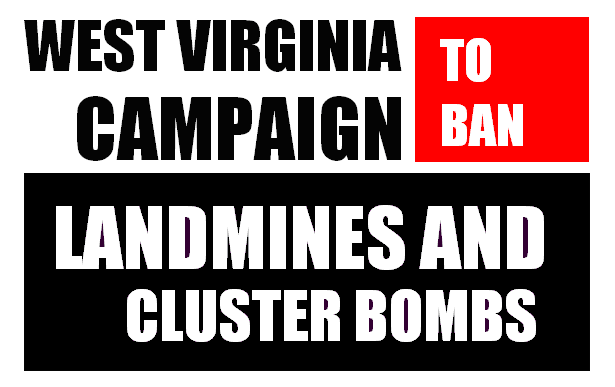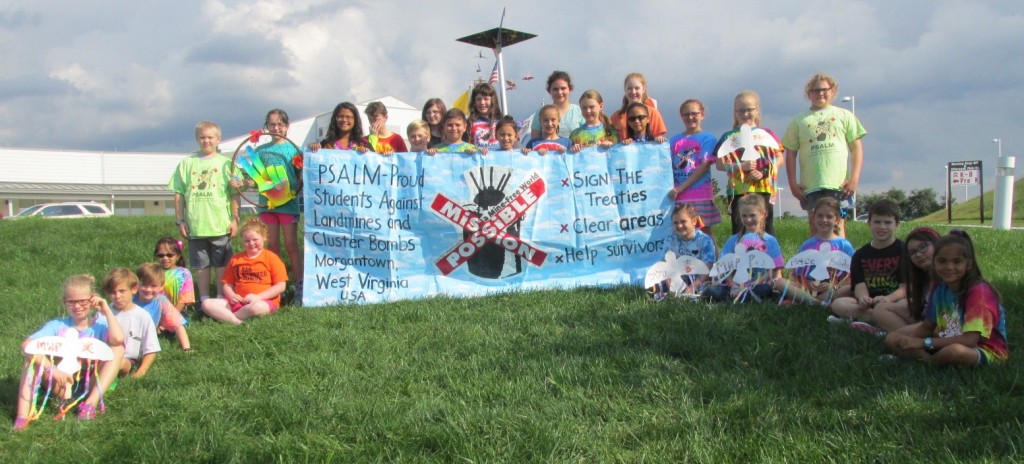As WVCBL/PSALM joins the ICBL-CMC Community to mark the International Day of Mine Awareness and Assistance in Mine Action this year, the world is shuddering under the terrible weight of the COVID-19 Pandemic, which by its nature is disproportionately affecting vulnerable populations around the world, including landmine and cluster munition survivors and persons with disabilities.
The international COVID-19 response is also galvanizing a spirit of multilaterism and cooperation–it is every day more apparent that individual countries cannot afford to go their own way, be it in fighting the pandemic, climate change, or in pursuing international security.
Governments, international organizations and civil society must commit to advancing international solidarity. Humanitarian disarmament is both a driver and a consequence of this push.
Global action against landmines and cluster munitions, and for the rights of survivors, have made a difference the world over, through the Mine Ban Treaty and the Convention on Cluster Munitions, pillars of humanitarian disarmament.
On International Mine Awareness Day 2020, ICBL-CMC is calling on all countries to join forces with States Parties to the Mine Ban Treaty and Convention on Cluster Munitions, to protect civilians and eliminate the threat from these banned weapons, globally.
This year, PSALM students joined ICBL-CMC members from around the world to strengthen these global norms and ensure the rights of survivors and impacted communities, including responding to new developments such as the announcement by the United States reversing its de-facto compliance with the Mine Ban Treaty. In response, members from over 21 countries including the US have taken actions including public demonstrations, letter writing to the US Administration, contacting embassies worldwide, a joint statement signed by more than 60 organizations (including PSALM/WVCBL), and a global petition, calling for a return to the US policy of supporting the goals of the Mine Ban Treaty.
“The world has rejected the use of landmines. The United States should be moving toward joining the Mine Ban Treaty, not away from it and should take immediate measures to block the deployment of landmines and prohibit the development, production, or other acquisition of new antipersonnel landmines,” said Jeff Abramson, senior fellow at the Arms Control Association, a member of the U.S. Campaign to Ban Landmines.
PSALM students agree. Students have devoted countless hours to making others aware of the destruction caused by these weapons.
At least 14 States Parties and other ICBL-CMC partners and mine ban advocates have condemned or otherwise expressed concern over the US landmine policy change including:
Austria, Belgium, Germany, the European Union, France, The Netherlands, Norway, Switzerland, Sudan (as Mine Ban Treaty President), Former Canadian Minister of Foreign Affairs Lloyd Axworthy, US Senators, the International Committee of the Red Cross, UNICEF USA, and the US Conference of Catholic Bishops.
We have also seen how the United Nations Secretary Generals’ 23 March call for a global ceasefire can contribute to stopping the use of landmines and cluster munitions and preventing further casualties, at a time when hospitals and medical personnel are overwhelmed responding to the pandemic.
Effective mine awareness and mine action must include eliminating the proliferation of the weapons threatening civilian lives. On Mine Awareness and Mine Action Day, we are calling on all countries to join the 108 States Parties to the Convention on Cluster Munitions to save lives, ensure survivors’ rights, prevent future tragedies, and support livelihoods.
This year the Second Review Conference of the Convention will take place in November with Switzerland as President and States Parties have set a goal of bringing on board as many new states as possible. We are working to help achieve that goal by reaching out to 29 priority countries—including those that have signed but not yet ratified the convention—and urging them to join this life-saving treaty.
“The CMC played a crucial role in making the Convention on Cluster Munitions happen and works on ensuring the universalization of the Convention–there is no other way, because we cannot give up on our goal to put an end to the horrific and deadly legacy of cluster bombs,” said Dejan Ivanoviç, Director of CMC member organization Assistance, Advocacy, Access, of Serbia. Serbia is one of 26 states and three other areas contaminated by cluster munition remnants globally, but is not a party to the Convention.
In the lead up to the Review Conference taking place in Lausanne, Switzerland in November, CMC members worldwide are sending letters to states not party and urging them to join immediately, and where not possible, to take interim steps towards joining the treaty.
The CMC network is sharing messages via social media on how joining the Convention on Cluster Munitions is not only a humanitarian imperative—cluster bombs indiscriminately kill girls, boys, women, and men at the time of attack, and for years thereafter—but also an opportunity for states to clearly demonstrate their international solidarity and commitment to saving civilian lives, protecting the most vulnerable, and leaving no one behind.
“On International Day of Mine Awareness and Assistance in Mine Action, ICBL-CMC stands with all of the communities around the world impacted by landmines, cluster munitions and other explosive remnants of war, and with the partner organizations and governments working to put an end to the tragedies they cause and ensure support for survivors,” said ICBL-CMC Director, Hector Guerra. “There is one clear and universal message in the terrible suffering we are seeing today from the COVID-19 Pandemic; we are in this together.”

